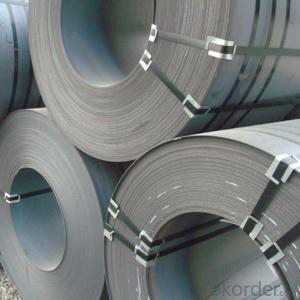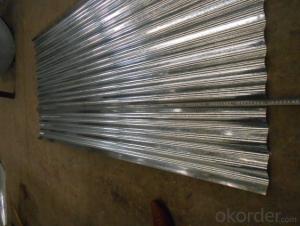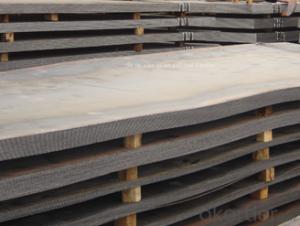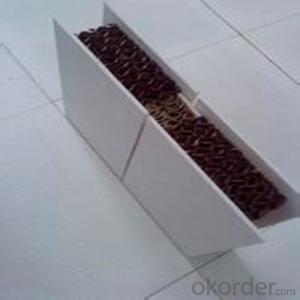Steel Plates,Steel Sheets,Sheets Steel Made In China
- Loading Port:
- Tianjin
- Payment Terms:
- TT OR LC
- Min Order Qty:
- 500 m.t.
- Supply Capability:
- 100000 m.t./month
OKorder Service Pledge
OKorder Financial Service
You Might Also Like
Item specifice
DESCRIPTION:
GRADE: SS400, ASTM A36, A572, ST37,ST52, Q195, Q215, Q235,Q345, S235JR etc.
STANDARD: GB/T709-2006, ASTM A36, JIS G3101, DIN EN 10025, SAE 1045, ASTM A570
SPEC: 1)Width: 600-2500mm or 1000,1050,1250,1500,1800,2000mm
2)Thickness:1.5mm-200mm or as customers’ special requirements;
3)Length: 2-12m or as customers’ special requirements
FEATURES OF STEEL COILS
(1)Good ductility
(2)Good corrosion resistance
(3)Excellent abrasion resistance and fatigue strength
(4)Good weldability
(5)Oxidation resistant performance
(6)Excellent in high temperature
DETAILED PICTURES FOR STEEL COILS
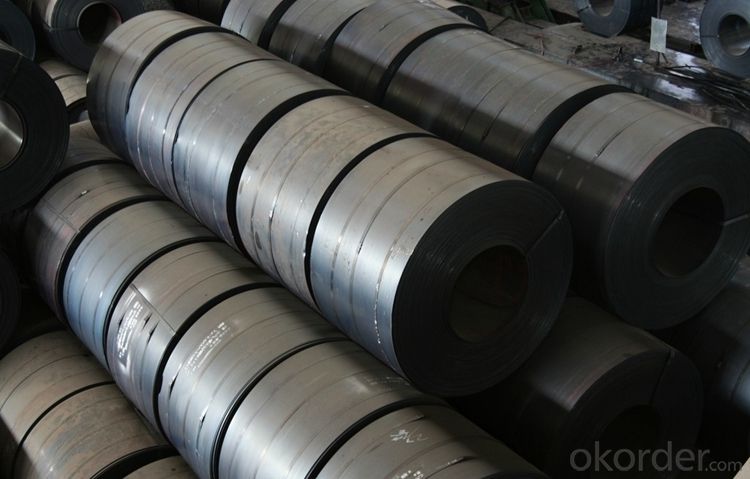
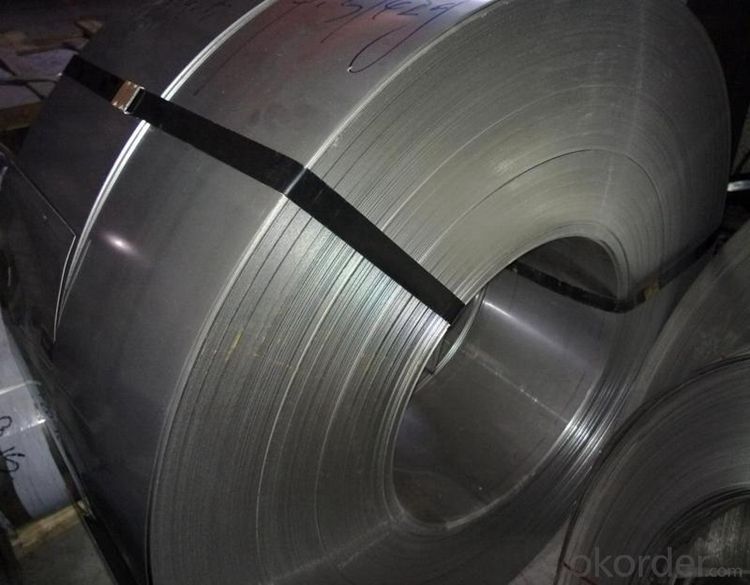
EXPORT MARKET FOR STEEL COILS/SHEETS
Our target market is the international market. Every year we export most of products to countries like India, Pakistan, South Korea, Brazil, Australia, South Africa, Spain, Sri Lanka, Taiwan, Hong Kong, etc.
OUR SERVICE
1.High quanlity and reasonable price.
2.Customized on-demand.
3.Reasonable shipping and fast delivery.
4.Free sample.
FAQ:
Q:Do you have OEM service?
A: Yes.Variety of products size,quality and quantity can be customized according to your need.
Q:Could you support free sample?
A:Yes.We can supply FREE samples.But the delivery charges will be covered by our customers.
Q:How about the delivery time?
A:Within 15-30days after receiving the deposit or L/C at sight.
- Q:What is the average lead time for ordering steel sheets?
- The lead time for ordering steel sheets can vary due to different factors, including the supplier, required quantity, customization needs, and current market conditions. Typically, the lead time ranges from a few days to several weeks. If the supplier has the steel sheets in stock, the lead time can be as short as a few days or less, ensuring prompt order fulfillment. However, if the sheets need to be obtained from a specific mill or manufacturer, the lead time may be longer. This is particularly true for orders with custom specifications, such as specific dimensions, finishes, or steel grades. Other factors that impact lead time include the supplier's production capacity and workload, transportation and logistics considerations, and potential delays resulting from unexpected events like natural disasters or labor disputes. To obtain accurate lead time estimates, it is crucial to communicate with the supplier or manufacturer. They can provide specific information based on their production capabilities and current circumstances. Moreover, it is advisable to plan ahead and allow for some buffer time to accommodate potential delays or unforeseen challenges during the ordering process.
- Q:Can steel sheets be used for elevator doors?
- Yes, steel sheets can be used for elevator doors.
- Q:What are the specifications for steel sheets used in construction?
- The specifications for steel sheets used in construction can vary depending on the specific project requirements. However, common specifications generally include the steel grade (such as ASTM A36 or ASTM A572), the thickness (measured in gauge or millimeters), the width and length dimensions, the surface finish (such as hot rolled or cold rolled), and any additional properties like corrosion resistance or fire resistance. These specifications ensure that the steel sheets meet the necessary strength, durability, and safety standards for their intended use in construction applications.
- Q:How are steel sheets coated for corrosion resistance?
- Steel sheets are commonly coated for corrosion resistance using a process called galvanization. Galvanization involves applying a layer of zinc to the surface of the steel sheet. This can be done through either hot-dip galvanization or electro-galvanization. In hot-dip galvanization, the steel sheet is immersed in a bath of molten zinc, which adheres to the surface of the steel through a metallurgical reaction. The zinc coating forms a protective barrier that prevents moisture and oxygen from reaching the steel, thus inhibiting corrosion. Electro-galvanization, on the other hand, involves passing an electric current through the steel sheet while it is immersed in a zinc electrolyte solution. The electric current causes the zinc ions in the solution to be attracted to the steel surface, forming a thin layer of zinc coating. This method is typically used for thinner steel sheets or when a more precise and controlled coating thickness is required. Both hot-dip galvanization and electro-galvanization provide effective corrosion resistance to steel sheets. The zinc coating acts as a sacrificial layer, meaning that it corrodes first before the steel underneath. This sacrificial protection extends the lifespan of the steel sheet and prevents rust from forming. Additionally, the zinc coating can also provide a decorative finish, making it suitable for both practical and aesthetic purposes. Overall, the process of galvanization is a widely used and effective method for coating steel sheets to enhance their corrosion resistance and durability.
- Q:What is the process of applying anti-fingerprint coatings to steel sheets?
- The process of applying anti-fingerprint coatings to steel sheets typically involves several steps. First, the steel sheets are thoroughly cleaned and degreased to remove any dirt or oil residue. This step is crucial to ensure proper adhesion of the coating. Next, a primer or base coat is applied to the steel sheets. This coat helps improve the bonding between the steel surface and the subsequent layers of the coating. After the base coat, the anti-fingerprint coating is applied using various methods such as spraying, dipping, or roll coating. This coating is designed to repel oils and fingerprints, making the steel sheets easier to clean and maintain. Once the coating is applied, the steel sheets are cured or dried according to the manufacturer's instructions. This step is important to ensure the coating fully adheres to the steel surface and develops its desired properties. Overall, the process of applying anti-fingerprint coatings to steel sheets involves cleaning, priming, coating, and curing to achieve a durable and effective solution for reducing fingerprints and smudges.
- Q:What are the different thickness options available for steel sheets?
- There are several thickness options available for steel sheets, ranging from very thin to extremely thick. The thickness of a steel sheet is typically measured in gauge, with lower gauge numbers indicating thicker sheets. The most common thickness options for steel sheets include 18, 20, 22, 24, 26, and 28 gauge, with 18 gauge being the thickest and 28 gauge being the thinnest. However, it's important to note that the specific thickness options can vary depending on the manufacturer and the intended use of the steel sheet. Additionally, steel sheets can also be custom made to specific thickness requirements based on the needs of the project.
- Q:What are the different surface textures available for steel sheets?
- Some of the different surface textures available for steel sheets include smooth, brushed, matte, textured, embossed, and patterned.
- Q:Can steel sheets be used for soundproofing applications?
- No, steel sheets are not typically used for soundproofing applications as they are not effective in blocking or reducing sound transmission.
- Q:What are the different surface treatments for steel sheets?
- There are several different surface treatments available for steel sheets, including galvanizing, powder coating, painting, and plating. These treatments help to protect the steel from corrosion, improve its appearance, and enhance its durability.
- Q:Are steel sheets resistant to scratching or abrasion?
- Yes, steel sheets are highly resistant to scratching and abrasion due to their strong and durable nature. They are designed to withstand external forces and are less likely to get scratched or damaged compared to other materials.
1. Manufacturer Overview |
|
|---|---|
| Location | |
| Year Established | |
| Annual Output Value | |
| Main Markets | |
| Company Certifications | |
2. Manufacturer Certificates |
|
|---|---|
| a) Certification Name | |
| Range | |
| Reference | |
| Validity Period | |
3. Manufacturer Capability |
|
|---|---|
| a)Trade Capacity | |
| Nearest Port | |
| Export Percentage | |
| No.of Employees in Trade Department | |
| Language Spoken: | |
| b)Factory Information | |
| Factory Size: | |
| No. of Production Lines | |
| Contract Manufacturing | |
| Product Price Range | |
Send your message to us
Steel Plates,Steel Sheets,Sheets Steel Made In China
- Loading Port:
- Tianjin
- Payment Terms:
- TT OR LC
- Min Order Qty:
- 500 m.t.
- Supply Capability:
- 100000 m.t./month
OKorder Service Pledge
OKorder Financial Service
Similar products
New products
Hot products
Related keywords
